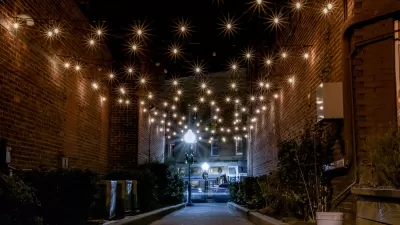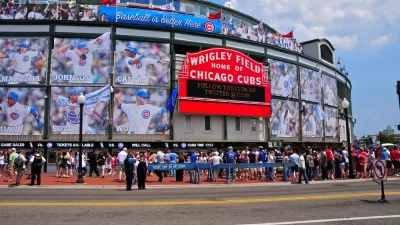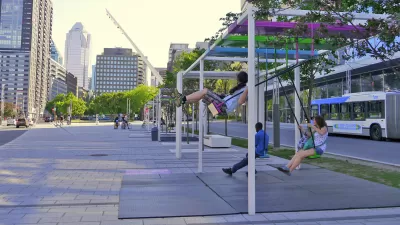Joel Kotkin once again leaps to the defense of the suburbs as a choice, and says that urbanists who are hoping that Americans will rush back into the cities are sadly mistaken.
"While millions of American families struggle with falling house prices, soaring gasoline costs and tightening credit, some environmentalists, urban planners and urban real estate speculators are welcoming the bad news as signaling what they have long dreamed of -- the demise of suburbia.
In a March Atlantic article, Christopher B. Leinberger, a visiting fellow at the Brookings Institution and a professor of urban planning, contended that yesterday's new suburbs will become "the slums" of tomorrow because high gas prices and the housing meltdown will force Americans back to the urban core. Leinberger is not alone. Other pundits, among them author James Howard Kunstler, who despises suburban aesthetics, and New York Times columnist Paul Krugman, see the pain in suburbia as a silver lining for urban revival.
Not so fast. The "out of the suburbs, back to the city" narrative rests more on anecdote than demographic or economic fact. Yes, high gas prices and rising sub-prime mortgage defaults are hurting some suburban communities, particularly newly built ones on the periphery. But the suburbs remain home to a majority of Americans and a larger proportion of U.S. families -- and people aren't leaving those communities in droves to live in cities. Even with economic growth slowing, many suburbs, exurbs and smaller towns, especially those whose economies are tied to energy, are continuing to do better than most cities in terms of job creation and population growth."
FULL STORY: Suburbia's not dead yet

Planetizen Federal Action Tracker
A weekly monitor of how Trump’s orders and actions are impacting planners and planning in America.

Maui's Vacation Rental Debate Turns Ugly
Verbal attacks, misinformation campaigns and fistfights plague a high-stakes debate to convert thousands of vacation rentals into long-term housing.

Cuomo Is the Candidate of Both NIMBYs and Developers. What Gives?
In the New York City mayoral race, odd bedfellows align to preserve the housing status quo.

Amtrak Rolls Out New Orleans to Alabama “Mardi Gras” Train
The new service will operate morning and evening departures between Mobile and New Orleans.

The Subversive Car-Free Guide to Trump's Great American Road Trip
Car-free ways to access Chicagoland’s best tourist attractions.

San Antonio and Austin are Fusing Into one Massive Megaregion
The region spanning the two central Texas cities is growing fast, posing challenges for local infrastructure and water supplies.
Urban Design for Planners 1: Software Tools
This six-course series explores essential urban design concepts using open source software and equips planners with the tools they need to participate fully in the urban design process.
Planning for Universal Design
Learn the tools for implementing Universal Design in planning regulations.
Heyer Gruel & Associates PA
JM Goldson LLC
Custer County Colorado
City of Camden Redevelopment Agency
City of Astoria
Transportation Research & Education Center (TREC) at Portland State University
Jefferson Parish Government
Camden Redevelopment Agency
City of Claremont





























